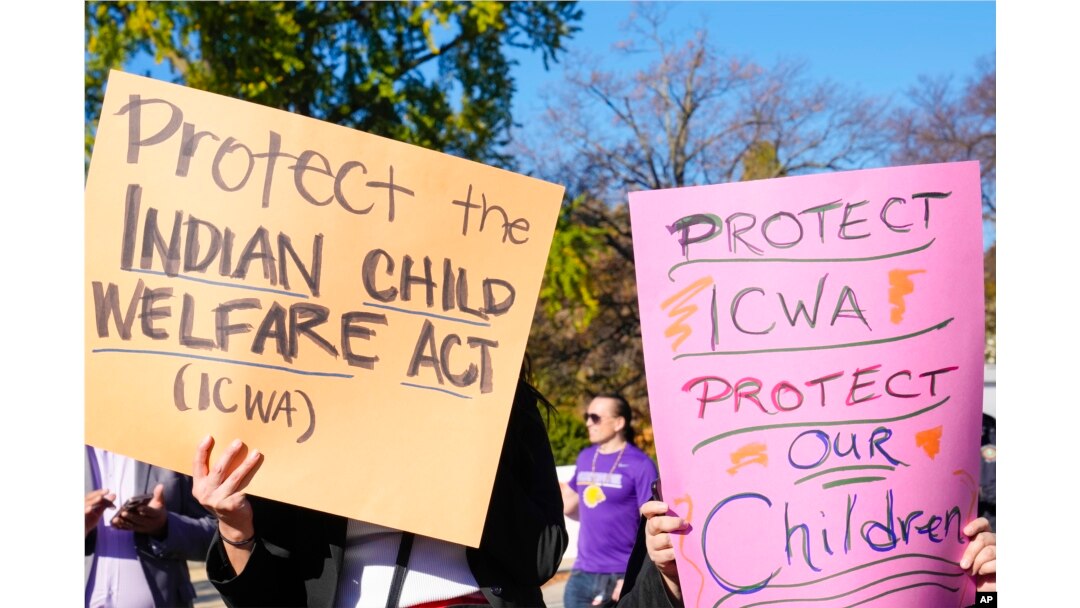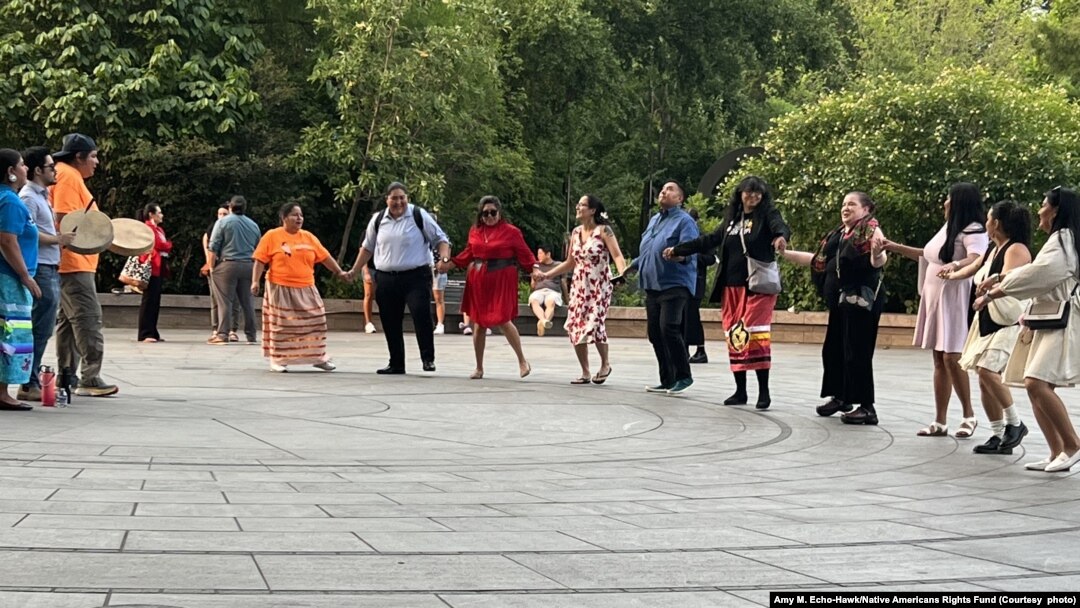Supreme Court Upholds Indian Child Welfare Act--For Now
The U.S. Supreme Court decision in Haaland v. Brackeen upholding the Indian Child Welfare Act (ICWA) reinforces tribal sovereignty, but some Native American leaders worry the legal challenges there are not over.
Congress passed ICWA in 1978 to stop state welfare systems from placing Native American children in non-Native families, a practice that Native Americans viewed as a continuation of historic federal efforts to "civilize" and assimilate Indians. Among other provisions, ICWA requires states to make every effort to place children in Native American homes.
In 2017, Texas couple Chad and Jennifer Brackeen and two other sets of non-Native foster parents looking to adopt Native children took the U.S. government to court, arguing — in part — that ICWA is unconstitutional because it discriminates on the basis of race.
A U.S. judge initially ruled in their favor. That was overturned on appeal on the grounds that Native Americans are a political group, not a race. The conservative libertarian group the Goldwater Institute and two other groups then took the case to the Supreme Court.

FILE - Demonstrators standing outside the U.S. Supreme Court in Washington, Nov. 9, 2022, as Justices heard arguments over the Indian Child Welfare Act.
As Justices readied to hear arguments in November 2022, Goldwater litigator Timothy Sandefur explained to VOA why the group opposes the law.
"Part of the problem with ICWA is that it … deprives states of the ability to protect Native children against abuse and, in fact, forces states to send Indian children back to abused homes that are known to be dangerous, where they are exposed to further harm," Sandefur said.
He cited three cases in which Indian children in foster care were returned to abusive families and killed. Among them was 5-year-old Antonio Renova, who was beaten to death by his biological parents 18 months after a Crow Tribe judge ordered his foster parents to return him to his biological parents.
Plaintiffs argued that Congress is "commandeering" states into enforcing federal law, in violation of the U.S. Constitution. And that gets at the heart of what's really driving ICWA detractors, said Sydney Tarzwell, an attorney with the Native American Rights Fund.
"I do not see Tim Sandefur, Goldwater or any of the other organizations involved in this case actively engaging in conversations centered in child welfare best practices and what actually works," she told VOA. "Tearing down federal Indian law via ICWA would serve their other interests."
Some environmental groups such as the nonprofit Accountable.US have suggested that Goldwater and allies with close ties to the fossil fuel industry are looking to erode tribal sovereignty on matters of resource extraction on public lands.
"That's my favorite conspiracy theory," Sandefur said. "It's ridiculous — but I don't know how to deny it."
The Court speaks
For now, tribal sovereignty in welfare matters is reaffirmed.
"Under our Constitution, Tribes remain independent sovereigns responsible for governing their own affairs," Justice Amy Coney Barrett wrote for the Court majority. "In adopting the Indian Child Welfare Act, Congress exercised that lawful authority to secure the right of Indian parents to raise their families as they please; the right of Indian children to grow in their culture; and the right of Indian communities to resist fading into the twilight of history."
Sandefur notes that ICWA lawsuits are still pending in several states, including California.
"The Supreme Court chose not to decide the constitutionality of ICWA as far as its racially discriminatory provisions are concerned," he said. "What that means is that someday the Court will be forced to resolve whether Indian children can be relegated to second class status and stripped of their constitutional rights based on their race."
Erin Dougherty Lynch, managing attorney for the Native American Rights Fund in Anchorage, says Sandefur is probably right.
"Regardless of what happened in Brackeen, they [ICWA detractors] are going to keep bringing in cases," she told VOA. "I don't mean to put too fine a point on it, but these are people who, in my opinion, are not accustomed to losing. They're not accustomed to being told no. They're very accustomed to getting what they want."
U.S. President Joe Biden said the nation's "painful history" loomed large over the Brackeen decision.
"In the not-so-distant past, Native children were stolen from the arms of the people who loved them. They were sent to boarding schools or to be raised by non-Indian families — all with the aim of erasing who they are as Native people and tribal citizens," he said in a statement.
"These were acts of unspeakable cruelty that affected generations of Native children and threatened the very survival of Tribal Nations. The Indian Child Welfare Act was our Nation's promise: never again."


